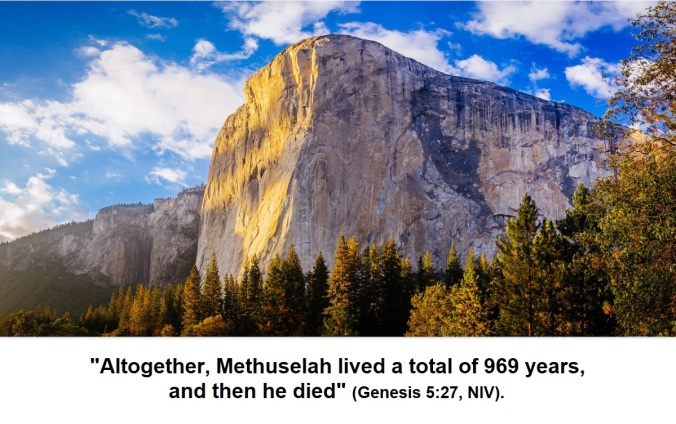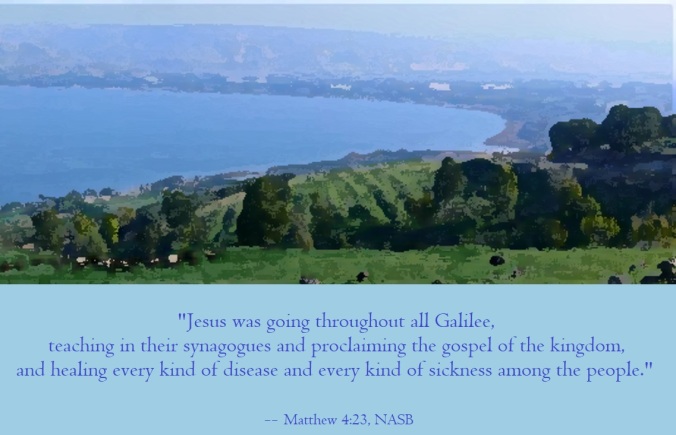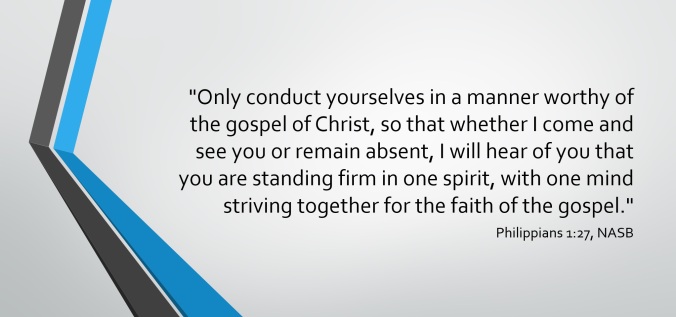“Go therefore and make disciples of all the nations…teaching them to observe all that I commanded you, and lo, I am with you always, even to the end of the age” (Matthew 28:19-20, NASB).
——————–
Contents:
1) Delight in the Lord (Psalm 37:4) (Mike Johnson)
2) Must A Thing Be Prohibited (C.R. Nichol)
——————–

-1-
Delight in the Lord (Psalm 37:4)
Mike Johnson
Psalm 37:4 says, “Delight yourself also in the Lord, And He shall give you the desires of your heart.” Do you delight in the Lord? The Psalmist, thought to be David, said this is what we are to do. The word found in the original (anag) carries with it the idea of something delicate or soft that someone would take pleasure in (The Complete Word Study Dictionary). Here it involves the idea of taking pleasure and delight in God. The verse says, “delight yourself,” so there is a choice involved and the concept of effort and commitment.
What does it mean today to take delight in something or someone? It involves the idea of being excited (thrilled, energized) when people are doing what they really want to do or when they are with someone they really love. What do you take great delight in today? Many take great delight in sports. They cannot wait for the season to start, and they eagerly anticipate the start of the big game. When the game is over, they talk about it with others. Truly, they delight in sports. Others may delight in television, wealth, shopping, eating, or their computer. It is good to have various hobbies and endeavors we enjoy. Primarily, however, as the text says, we should delight in the Lord! For us, God produces delight, pleasure, and happiness. If we delight in the Lord, the result should be a joyful interest in things of a spiritual nature.
Consider as an example King David. He was truly a person who delighted in the Lord for much of his life. Consider the various ways he showed this delight.
1. BY DOING GOD’S WILL – David wrote in Psalm 40:8, “I delight to do Your will, O my God, And Your law is within my heart.” (Note also Psa. 16:8-9.) It would be very difficult for a person to delight in the Lord if he were not actively involved in obeying Him. A person in sin and rebellion often does not even feel comfortable having a conversation about God. Sin puts a “cloud” over his relationship with God. If we are going to delight in the Lord, we must have an earnest desire to obey Him and be willing to turn away from sin.
2. BY MEDITATING ON THE SCRIPTURES – He wrote in Psalm 1:1-2, “Blessed is the man who walks not in the counsel of the ungodly, nor stands in the path of sinners, Nor sits in the seat of the scornful; But his delight is in the law of the Lord, And in His law he meditates day and night.” How much do we think about the Scriptures? Are our thoughts about the Scriptures just confined to church services? When we “delight in the Lord,” we will think about God’s Law often.
3. BY BEING ABSORBED IN HIS WORD – David also wrote Psalm 119, which focuses very much on the Word of God. In verse 16, he stated, “I will delight myself in Your statutes; I will not forget Your word.” In verse 47, he said, “And I will delight myself in Your commandments, Which I love.” (Please also note verses 24, 35, and 77.) Are our minds more absorbed with politics, sports, and entertainment than with God’s Word? If people delight in the Lord, they should be, as we say today, “all about” the Scriptures.
4. BY PRAYING – In Psalm 55:16-17 he said, “As for me, I will call upon God, and the Lord shall save me. Evening and morning and at noon I will pray, and cry aloud, and He shall hear my voice.” David prayed regularly. It would seem reasonable that if we take delight in the Lord, we would pray a lot, i.e. we would want to communicate with our Creator. In the New Testament, we are told to “pray without ceasing” (I Thess. 5:17), and to “continue steadfastly in prayer” (Rom. 12:12).
5. BY ASSEMBLING – In Psalm 122:1, David said, “I was glad when they said unto me, ‘Let us go into the house of the Lord.’” In Psalm 16:11, he said, “You will show me the path of life; In Your presence is fullness of joy; At Your right hand are pleasures forevermore.” (Note also Isa. 58:13-14 where the writer called the Sabbath Day a “delight.”) A person who delights in the Lord will assemble for worship.
6. BY SINGING PRAISES – In Psalm 59:16, he points out, “But I will sing of Your power; Yes, I will sing aloud of Your mercy in the morning; For You have been my defense And refuge in the day of my trouble.” Singing is a command (Eph. 5:19, Col. 3:16), but it is a great opportunity for worship, and we should be “delighted” to sing praises to God.
Going back to verse 4b, we see a blessing attached to delighting in the Lord. It says if we trust in the Lord, He will give us the “desires of our heart.” Some interpret this to mean if we trust in the Lord, He will give us anything we want such as luxuries, wealth, and power. However, this is not talking about superficial earthly desires to have more. I Timothy 6:6 says, “Now godliness with contentment is great gain.” I John 2:15-17 points out we are not to love the world or the things in the world. The passage in our text is consistent with the New Testament teaching on prayer. In the New Testament, we are given assurances regarding prayer (Mt. 7:7-11), but we also learn there are conditions of acceptable prayer (I Pet. 3:12, James 5:16-18). It is not saying if we delight in the Lord, He will give us any luxury we ask for. Instead, as in the New Testament, God knows our needs, we pray to Him, and His response will be in keeping with what is best for us.
We have a tendency to get discouraged. We see moral decay with little interest in spirituality. Perhaps the stock market is down, the economy is bad, and we see war and violence throughout the world. This bleakness can result in despair, but regardless of what is happening around us, we should always delight in the Lord. Corrie ten Boom put it like this.
Look around, you’ll be distressed. Look within, you’ll be depressed,Look to the Lord, you’ll be at rest.
Thus, do not get angry and envious because of the prosperity of evil people; instead, rejoice in the Lord. Delighting in the Lord is not just something we say we do. If we delight in Him, it will be seen by our attitude and by our lives.
— Via The Elon Challenger, Volume 16, Number 9, May 2019
——————–

-2-
Must A Thing Be Prohibited?
C.R. Nichol
Some think they are at liberty to introduce anything into God’s worship, providing God has not, in so many words, prohibited it. This is evidently a mistake. Such a plan of procedure would open the flood gates for innumerable innovations. On this principle every kind of food and drink might be brought into the Lord’s supper, and burning incense might be added to the worship. We must remember that law is inclusive and exclusive, including the things commanded and excluding all things else. This principle is too well known to need argument. Besides, in religious matters God alone has the right to guide men, and when man undertakes to add forms of service or worship not authorized by God’s law, he assumes prerogatives which belong exclusively to God. He is presuming to take the office of God; one who has proper reverence for God so regards him.
– via The Beacon, April 21, 2019
——————–
The Steps That Lead to Eternal Salvation
1) Hear the gospel, for that is how faith comes (Rom. 10:17; John 20:30-31).
2) Believe in the deity of Christ (John 8:24; John 3:18).
3) Repent of sins (Luke 13:5; Acts 17:30).
4) Confess faith in Christ (Rom. 10:9-10; Acts 8:36-38).
5) Be baptized in water for the remission of sins (Mark 16:16; Acts 2:38; 22:16; Rom. 6:3-4; Gal. 3:26-27; 1 Pet. 3:21).
6) Continue in the faith, living for the Lord; for, if not, salvation can be lost (Heb. 10:36-39; Rev. 2:10; 2 Pet. 2:20-22).
——————–
Tebeau Street
CHURCH OF CHRIST
1402 Tebeau Street, Waycross, GA 31501
Sunday services: 9:00 a.m. (Bible class); 10 a.m. & 5 p.m. (worship)
Wednesday: 7 p.m. (Bible class)
evangelist/editor: Tom Edwards (912) 281-9917
Tom@ThomasTEdwards.com
http://thomastedwards.com/go (Older version of Gospel Observer website without pictures, but back to March 1990)
http://tebeaustreetchurchofchrist.org/
http://ThomasTEdwards.com/audioser.html (audio sermons)


















